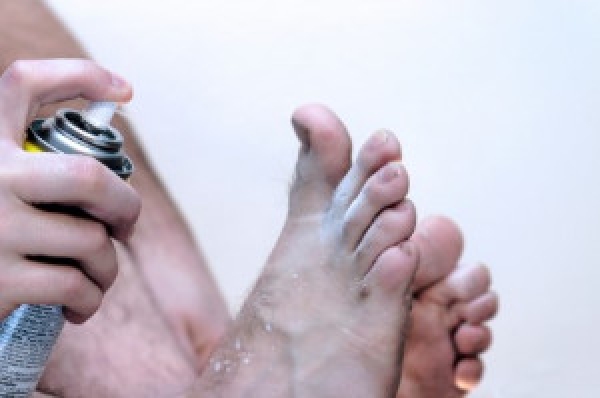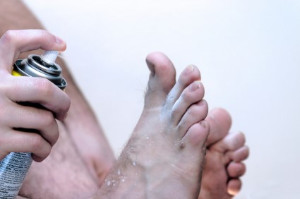Athlete’s foot can occur when fungi, namely dermatophytes, causes an infection in the skin of the foot. Athlete’s foot, or tinea pedis, is a persistent skin ailment with symptoms such as itchiness, redness, flakiness, burning, and cracking of skin—typically between the toes of the foot. Athlete’s foot is spread by direct contact and also through exposure to damp public areas where the fungi live. You can reduce your chance of contracting athlete’s foot by keeping your nails trimmed and using sandals or flip-flops in public showers, locker rooms, and swimming pools. If you develop athlete’s foot, you can help control it by wearing sandals and cotton socks to keep your feet dry, clean, and cool, and avoid public places where dermatophytes lives. If you are suffering from athlete's foot, a podiatrist can also prescribe medication to clear this persistent infection up, as well as help prevent it from returning.
Athlete’s foot is an inconvenient condition that can be easily reduced with the proper treatment. If you have any concerns about your feet and ankles, contact Dr. Joshua David Scoll from Pennsylvania. Our doctor will treat your foot and ankle needs.
Athlete’s Foot: The Sole Story
Athlete's foot, also known as tinea pedis, can be an extremely contagious foot infection. It is commonly contracted in public changing areas and bathrooms, dormitory style living quarters, around locker rooms and public swimming pools, or anywhere your feet often come into contact with other people.
Solutions to Combat Athlete’s Foot
- Hydrate your feet by using lotion
- Exfoliate
- Buff off nails
- Use of anti-fungal products
- Examine your feet and visit your doctor if any suspicious blisters or cuts develop
Athlete’s foot can cause many irritating symptoms such as dry and flaking skin, itching, and redness. Some more severe symptoms can include bleeding and cracked skin, intense itching and burning, and even pain when walking. In the worst cases, Athlete’s foot can cause blistering as well. Speak to your podiatrist for a better understanding of the different causes of Athlete’s foot, as well as help in determining which treatment options are best for you.
If you have any questions please feel free to contact one of our offices located in Philadelphia, Bensalem, and Fairless Hills, PA . We offer the newest diagnostic and treatment technologies for all your foot and ankle needs.

